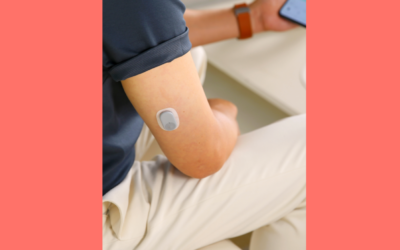By Maddie Tudor on January 11, 2023
Community pharmacy is one of the four pillars of the primary care system in England. The work community pharmacists do, involves providing pharmaceutical and cognitive services to support patients with various conditions. The role works alongside general practices (GPs), dentists and opticians to deliver NHS services to patients in a specific community area. We’re going to delve into how their work ties in with medicines optimisation.
What is medicines optimisation?
£300 million worth of medicine is wasted every year unnecessarily within the NHS1. Up to 50% of patients do not take medicine they have been prescribed, according to the National Institute for Health and Care Excellence.
Medicines optimisation is a process which heavily involves pharmacists in ensuring medicines are delivered safely to patients whilst reducing prescribing waste.
The role of a community pharmacist
A community pharmacist role means they have hands-on regular contact with patients and carers in the community. They also have the ability to intervene with prescriptions within community care if deemed necessary. Part of their role is having honest and open conversations with patients and ensuring the patient understands why they are taking their medication and how to take them. Supporting patients by giving them a voice and a choice in prescribed medicines that are right for them is a priority for community pharmacists. This opens the door to identifying opportunities to improve the value that medicines deliver.
From professional judgement on making interventions on prescriptions to preventing patients experiencing harm from medicines to providing pharmaceutical advice to patients on their prescribed medicines, these are just a few ways that community pharmacists play an important role in delivering medicines optimisation.
Communicating feedback to deliver medicines optimisation
Community pharmacists have a local organisation, Local Pharmaceutical Committee (LPC). This organisation enables chosen representatives to discuss pharmacy services and relevant feedback. This unlocks the opportunity to discuss additional support needed around medicines and how this can be implemented to optimise medicines optimisation.
The changing landscape for community pharmacists, what does this mean?
The transition from CCGs to ICSs has created a space to enable community pharmacists’, primary care pharmacists and secondary care pharmacists to integrate, share knowledge and learnings so they’re at the heart of sharing data, digital medicine and improving level of care. The transition has enabled pharmacists to build a bank of knowledge and expertise in various sectors so there won’t be a skill shortage.
What’s next?
With the NHS transition from CCGs to ICSs, we’re following them on the journey to see how medicine optimisation teams are adapting and evolving to the new landscape. Follow us on Twitter @SpiritMedsOp to stay up-to-date on our views, events and valuable tools and services that support the NHS. Or, you can watch our webinar with HSJ where we discussed how integrated care systems can make the best use of medicines optimisation and pharmacy services here.
Reference
1NHS England: Pharmaceutical waste reduction in the NHS https://www.england.nhs.uk/wp-content/uploads/2015/06/pharmaceutical-waste-reduction.pdfhttps://www.carbonbrief.org/guest-post-calculating-the-carbon-footprint-of-the-nhs-in-england/ accessed 27/06/2022


